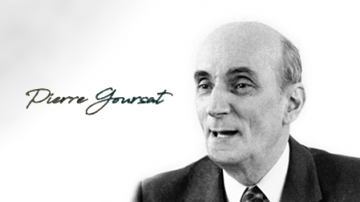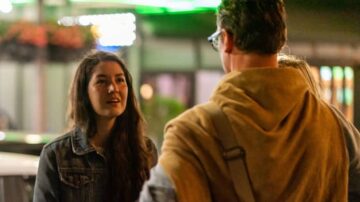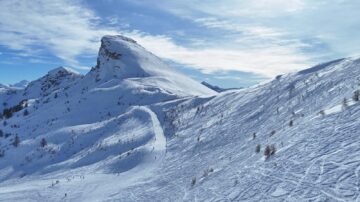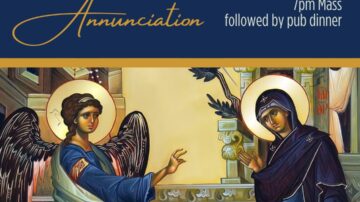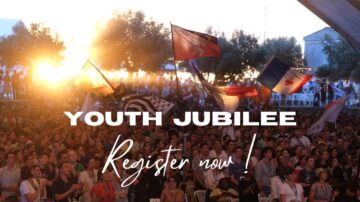"The pandemic has greatly amplified the cry of the poor and that of the earth"
Joshtrom Isaac Kureethadam is a priest and Coordinator of the “Ecology and Creation” team within the Dicastery for Promoting Integral Human Development. He is also Director of the Institute for Social and Political Sciences of the Pontifical Salesian University in Rome.
Tebaldo Vinciguerra is married and father of a family, qualified in Political Sciences; he is a former Fidesco volunteer, and since 2011 has been working on various ecological issues for the Holy See.
Among the signs of the times are all these challenges associated with ecology
Is it the role of the Church to talk about ecology? If so, what ecology are we talking about?
TV: The word Church “designates the assembly of those whom the Word of God gathers together to form the People of God.” The Church “is both the means and the goal of God’s plan: prefigured in creation, (…) founded by the words and actions of Jesus Christ, fulfilled by his redeeming Cross and his Resurrection, the Church has been manifested as the mystery of salvation by the outpouring of the Holy Spirit. She will be perfected in the glory of heaven as the assembly of all the redeemed of the earth.” (Catechism § 777 and 778).
While keeping this eschatological perspective, it is here below, in this life, that we are called to live the evangelical teachings of charity, compassion, solidarity, humility, and justice. Gaudium et spes (Vatican II) reaffirms that nothing can leave indifferent the followers of Christ: they bear “the news of salvation which is meant for every man,” and “there is nothing genuinely human which fails to raise an echo in their hearts.” (…) “The community (of Christians) realizes that it is truly linked with mankind and its history by the deepest bonds.” (GS §1)
Dioceses, Caritas International, any number of congregations, associations or Catholic-inspired unions know that challenges associated with ecology make life problematic for millions of people – violence over natural resources, desertification, irresponsible speculation in certain vital foodstuffs, diseases related to pollution, access to water in sufficient quantity or appropriate quality, the various problems
encountered by farmers or fishermen, and situations of poverty or involuntary migration owing to conditions that are too harsh, unjust and unbearable. Among the signs of the times are all these challenges
associated with ecology. Challenges that are “common” to all because the root of ecology, oikos, refers us back to “the common home” of all humanity.
In his exhortation Reconciliatio et paenitentia, John Paul II summarized the mission of the Church as “the work of … reconciliation between man and God, man and his brothers, man and the whole of creation.” (§4) From this work
stem the position on ecology that the Church has taken at various levels. The Church also intervenes practically through countless bodies, in accordance with the principle of subsidiarity as far as is possible, respecting particular local circumstances, and acting in co-operation with other bodies.
Paul VI had already addressed ecological matters in an interconnected way – pollution, demography, moral issues, the role of lawyers and international bodies in safeguarding nature. This is an integral approach
following his encyclical Populorum progressio, in which he offered a
reflection on the integral development of the whole person, of every person, and of all people. His teachings were taken up and deepened by John Paul II and Benedict XVI, and then by Pope Francis whose encyclical Laudato Si proposes “integral ecology” as a model for analysis and action.
Integral ecology consists of social, economic, cultural and human ecology, with an ecology of daily life and of healthy institutions. Of course, this is not merely a series of “boxes to be ticked”, it is not an end in itself nor a simple “Catholic”
reformulation of UN talk of sustainable development! Rather, it is a structured approach towards a higher purpose, namely a good and meaningful life, the common good of the whole human family, a call to the integral development of
every person, and a journey towards holiness. In speaking of ecology, we cannot detach from this overall vision any one document, any one advocacy or formation initiative, or any one practical project by the Church. Finally, I emphasize that the Church speaks of “creation”, which implies a Creator! Taking an interest in ecology comes back therefore to
believing that in his work of creation – which we are able to contemplate and in which we live and develop – there are rules and lessons, which speak to us of his love, and of his purpose for Humanity.
The explosion of this coronavirus is in fact a “reminder” from nature.
Why have a Laudato Si’ Special Anniversary Year, 5 years after the publication of Pope Francis’s Encyclical of the same name? Is there a fresh emergency?
JK: Why barely five years later? One can find a clue in the very words of Pope Francis on May 24th, when he announced this year: “Today is the fifth anniversary of the Encyclical Laudato Si’, which sought to draw attention to the cry of the earth and of the poor.” These cries have become more shrill and more heartbreaking during the few years that have passed. The cry of the earth echoes loudly, again and again, in the many signs of the current ecological crisis – droughts, floods, cyclones, destruction of life-sustaining ecosystems and unprecedented loss of biodiversity, pollution of the soil, the atmosphere and water courses, shortage of water and deforestation. The suffering and agony of mother earth are being shown in many other ways. The poor are also groaning. Vulnerable communities all over the world often suffer disproportionately from ecological deterioration and are the first to feel its effects. As Pope Francis says in Laudato Si’, there is an “intimate relationship between the poor and the fragility of the planet.” (§16) The scientific community has been warning us, and our children and young people have been reminding us over the past few months – we are running out of time. As Pope Francis told executives of oil and energy companies who gathered at the Vatican last year, “Our children and grandchildren must not pay, it is not just that they should pay the price of our irresponsibility.” The Holy Father is responding to this planetary emergency by announcing this Special Anniversary Year so we may intensify our efforts towards responding more effectively to the cries of the earth, of the poor, and of our children.
This Laudato Si’ Special Anniversary Year is taking place in the context of a global pandemic and of the crises in health, the economy and society which it is generating globally. How does the encyclical Laudato Si’ “shed light on“ this crisis and open up new paths forward?
JK: This pandemic has greatly amplified the cry of the poor and the cry of the earth. The origin of the current coronavirus has to do with human interference in the complex equilibrium of natural ecosystems through the trade in wild animals, deforestation linked to mining, animal breeding, etc. The emergence of Covid-19 has revealed a fundamental truth that we have ignored for too long – we cannot live healthy lives if our relationship with the planet and its ecosystems is not healthy. The explosion of this coronavirus is in fact a “reminder” from nature. In any case, as in all crises, it is clear that the poor are the hardest hit. We observe the suffering of poor communities, especially indigenous and minority groups, caused by lock-down and its socio-economic consequences. At the end of the day, the poor are considered merely as a labor force within an economic system which is devastating the planet and the bodies of people, the unfortunate victims of the throw-away culture that Pope Francis vehemently denounces again and again.
In June 2020, on the occasion of this Laudato Si’ Special Anniversary Year, the Vatican published a document on integral ecology (Journeying towards Care for our Common Home). What does this have to contribute that is new compared with the encyclical?
TV: Several Dicasteries of the Roman Curia participated in the drafting of this work, each contributing its own competence, together with various other Church organizations. It lists projects inspired by the Encyclical and proposes courses of action. Of course, Laudato Si’ does already give a particularly large number of examples, but this new document is directed mainly towards commitment and action. The projects that it describes come from every continent and show an amazing diversity, which is most encouraging. Its short chapters on various themes (for example, on water, energy, or health), make it a book that is easy to read. It is also a way to pay tribute to these initiatives and to give them greater visibility1.
The Special Anniversary Year holds a promise: a period of grace at a time of deep crisis
The Pope calls us to an ecological conversion. Yet some people think that our actions have only a minimal impact on our environment.
TV : We all live in relationship, and our choices and our actions do indeed have an impact – as also does our inaction. Everyone has their conscience and their share of responsibility. Those who are better informed and more influential have all the greater responsibility for the common good!
JK : The Special Anniversary Year holds a promise: a period of grace, kairos, at a time of deep crisis (ecological, social, and economic, associated with issues of migration, health and food security).
God’s Spirit is calling all people of good will to experience a genuine “ecological conversion”, both personal and communal, on this matter. Such a conversion should result in practical action to protect the earth and also in radical changes in our consumerist lifestyles which are largely contributing to the collapse of our common home.
The program of the Laudato Si’ Special Anniversary Year, under the guidance of the Dicastery for Promoting Integral Human Development, consists of an open set of initiatives, to which local Churches and communities are warmly invited to add their own programs.
This year will lead to a plan of action over several years, to enable us to put integral ecology into practice in our families, parishes and dioceses, in our religious orders, movements, schools and universities, in our health institutions and businesses, in agriculture and in every other sphere of life.
Initially published in IEV n.349, October -December 2020

